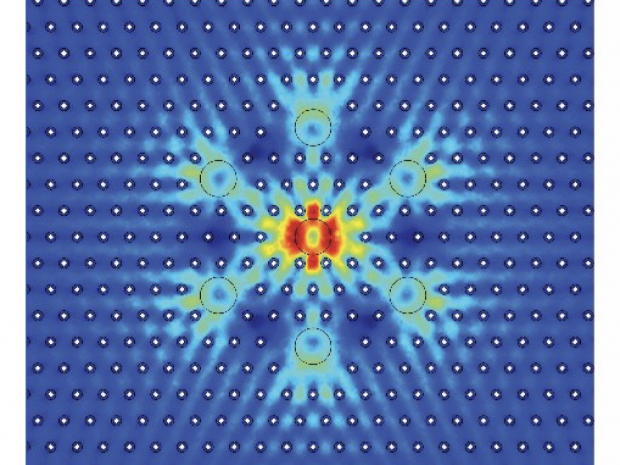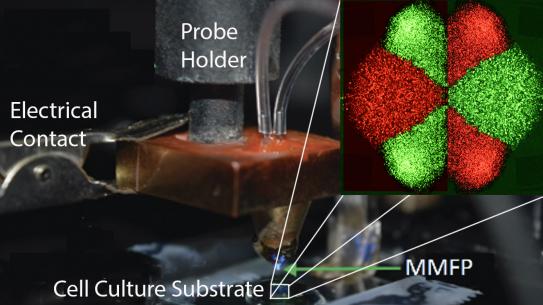Multiphysics Microfluidic Probes for Multiparametric Single-Cell Manipulations

Speaker:
Mohammad Qasaimeh, PhD
Assistant Professor of Mechanical and Biomedical Engineering
NYU Abu Dhabi
Abstract:
The microfluidic probe (MFP) is a channel-less, “contact-less” technology that eliminates the need for conventional microfluidic channels. Without the “classical” closed conducts, the MFP confines fluids hydrodynamically, and thus is mobile and dynamically-controlled. As a result, the concept yields a microfluidic delivery tool that works with any physically-decoupled substrate, scans across large surfaces, and targets specific objects without interfering with the surrounding sample. For more than a decade, MFPs were limited to chemical perfusion studies. Recently, we established a framework for rapidly prototyping MFPs in an integrated manner, and consequently advanced the technology by integrating multiphysics elements for actuation and manipulation. In this talk, I will discuss our efforts in developing the Multiphysics Microfluidic Probes (MMFPs) for multiparametric single-cell manipulation and analysis. The first example targets applications in sequential cell separation and patterning, achieved by integrating the probe with dielectrophoretic forces. “On the fly” cell separation and patterning within an open microfluidic system is of great importance in the fields of engineered co-culture models for drug testing and tissue engineering. Another example aims to develop the MMFP as an innovative tool for unprecedented multiplexed capture of Circulating Tumor Cells (CTCs). The probe is integrated with micromixing elements, while the bottom substrate is functionalized with an array of different capture antibodies. Multiplexed capture of CTCs possesses a great potential in offering new insights on patients’ clinical profiles for diagnostic, prognostic, and personalized medicine applications. The last example to be discussed in this talk is our ongoing efforts to develop a MMFP for single-cell targeted delivery, sampling, manipulation, and analysis. In this project, we integrate elements for cell electroporation and introduce the new concept of “electro-thermo-fluidic tweezer”, where the tool can manipulate and analyze adherent cells at single-cell levels. This approach will enable extraordinary and innovative experimentations on cells such as gene therapy, subcellular dissection, and high-resolution genotyping.


